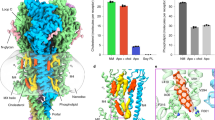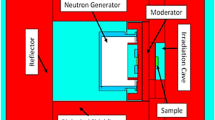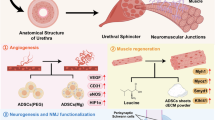Abstract
IN a study of the effects of ions on the rat diaphragm, it has been found that denervated preparations are much more sensitive to potassium than the normal diaphragm stimulated through its nerve. A dose of potassium, for example, exposure to a concentration of 0·08 per cent in Krebs's solution, which has no depressant action on normal muscle, may completely depress the response of denervated muscle to electrical stimuli while its response to acetylcholine remains. Observations have now been made on diaphragms denervated functionally by curare, which prevents the action of acetylcholine, or by lack of glucose, which prevents its synthesis or release. The effect is the same in both cases. If now, however, the experiment is reversed and the potassium added first, it is found that after curare, or through lack of glucose, which abolish neuromuscular transmission, the muscle has become inexcitable. The exact cause of this somewhat dramatic finding is not certain.
This is a preview of subscription content, access via your institution
Access options
Subscribe to this journal
Receive 51 print issues and online access
$199.00 per year
only $3.90 per issue
Buy this article
- Purchase on SpringerLink
- Instant access to full article PDF
Prices may be subject to local taxes which are calculated during checkout
Similar content being viewed by others
References
Boyle, P. J., and Conway, E. J., J. Physiol., 100, 1 (1941).
Brown, G. L., and Euler, U. S. von, J. Physiol., 93, 39 (1938).
Author information
Authors and Affiliations
Rights and permissions
About this article
Cite this article
HAJDU, S., MCDOWALL, R. Potassium and Neuromuscular Transmission. Nature 163, 841 (1949). https://doi.org/10.1038/163841a0
Issue date:
DOI: https://doi.org/10.1038/163841a0



